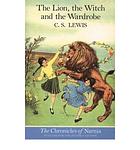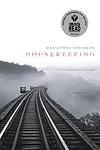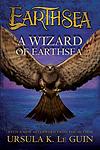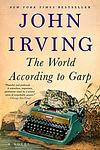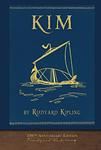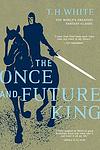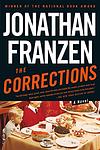The Greatest "Fiction" Books Since 1900
Click to learn how this list is calculated.
This list represents a comprehensive and trusted collection of the greatest books. Developed through a specialized algorithm, it brings together 300 'best of' book lists to form a definitive guide to the world's most acclaimed books. For those interested in how these books are chosen, additional details can be found on the rankings page.
Genres
Countries
Date Range
Reading Statistics
Click the button below to see how many of these books you've read!
Download
If you're interested in downloading this list as a CSV file for use in a spreadsheet application, you can easily do so by clicking the button below. Please note that to ensure a manageable file size and faster download, the CSV will include details for only the first 500 books.
Download-
126. The Ambassadors by Henry James
The novel centers around a middle-aged man named Lambert Strether who is sent from New England to Paris by a wealthy widow, Mrs. Newsome, to convince her wayward son, Chad, to return home. However, upon arriving in Europe, Strether is charmed by the sophisticated lifestyle Chad has adopted and finds himself questioning the puritanical values of his homeland. He also becomes entangled in romantic relationships and complex social dynamics, leading him to ultimately question his loyalty to Mrs. Newsome. The book explores themes of morality, identity, and the concept of the American versus European lifestyle.
-
127. Atonement by Ian McEwan
Atonement is a powerful novel that explores the consequences of a young girl's false accusation. The narrative follows the lives of three characters, the accuser, her older sister, and the sister's lover, who is wrongly accused. This false accusation irrevocably alters their lives, leading to the accused's imprisonment and eventual enlistment in World War II, while the sisters grapple with guilt, estrangement, and their own personal growth. The novel is a profound exploration of guilt, forgiveness, and the destructive power of misinterpretation.
-
128. The Lion, The Witch and the Wardrobe by C. S. Lewis
Four siblings are evacuated from London during World War II and sent to live with an old professor in the countryside. In his house, they discover a magical wardrobe that serves as a portal to the land of Narnia, a world filled with mythical creatures and ruled by an evil White Witch. The children are soon caught up in a struggle to free Narnia from the witch's eternal winter, aided by the majestic lion Aslan. The story combines elements of fantasy, adventure, and Christian allegory.
-
129. Housekeeping by Marilynne Robinson
The novel explores the life of two sisters, Ruth and Lucille, who are raised by a series of relatives in a small, secluded town in Idaho after their mother's suicide. The girls' lives are profoundly affected by the eccentric and transient lifestyle of their aunt Sylvie, who becomes their guardian. The narrative delves deeply into themes of family, identity, womanhood, and the impermanence of life, ultimately leading to a divide between the sisters as they choose different paths in life.
-
130. A Wizard of Earthsea by Ursula K. Le Guin
This fantasy novel follows the story of a young boy named Ged who lives in a world of islands called Earthsea. Ged discovers he has a natural talent for magic and is sent to a school for wizards on the island of Roke. As he grows and learns, his arrogance leads him to unleash a shadow creature that he must then spend years trying to defeat. The book explores themes of balance, power, and the danger of hubris, as Ged learns to control his abilities and accept responsibility for his actions.
-
131. Of Mice and Men by John Steinbeck
The book is a tragic tale of two displaced ranch workers during the Great Depression in California. The two main characters, an intelligent but uneducated man and his mentally disabled companion, dream of owning their own piece of land. However, their dreams are thwarted by circumstances beyond their control, leading to a heart-wrenching conclusion. The book explores themes of friendship, dreams, loneliness, and the harsh realities of the American Dream.
-
132. The World According to Garp by John Irving
The novel follows the life of T.S. Garp, the illegitimate son of a feminist mother, who becomes a writer. Garp's life is filled with unusual experiences and characters, from his unconventional conception to his untimely death. He navigates through a world filled with sexual violence, infidelity, and gender issues, and his life story is punctuated by his own literary creations. His mother's feminist ideals and the tragic events of his life deeply influence his writing and worldview.
-
133. Kim by Rudyard Kipling
"Kim" is a thrilling adventure set in India during the height of the British empire. The story follows the life of a young Irish orphan, Kimball O'Hara, who grows up on the streets of Lahore. Kim's life takes a dramatic turn when he becomes involved in the 'Great Game', the political conflict between Russia and Britain in Central Asia. Guided by an old Tibetan Lama on a spiritual quest, Kim is recruited by the British secret service and sent on a dangerous mission across the Himalayas. The novel explores themes of identity, imperialism, and East vs. West.
-
134. Atlas Shrugged by Ayn Rand
This novel unfolds in a dystopian United States where society's most productive citizens, including inventors, scientists and industrialists, refuse to be exploited by increasing social and economic demands. As a response, they withdraw their talents, leading to the collapse of the economy. The story presents the author's philosophy of objectivism, which values reason, individualism, and capitalism, and rejects collectivism and altruism. The narrative primarily follows Dagny Taggart, a railroad executive, and John Galt, a philosophical leader and inventor, as they navigate this societal breakdown.
-
135. The God of Small Things by Arundhati Roy
This novel is a poignant tale of fraternal twins, a boy and a girl, who navigate through their childhood in Kerala, India, amidst a backdrop of political unrest and societal norms. The story, set in 1969, explores the complexities of their family's history and the tragic events that shape their lives. Their mother's transgression of caste and societal norms by having an affair with an untouchable leads to disastrous consequences, revealing the oppressive nature of the caste system and the destructive power of forbidden love. The novel also delves into themes of postcolonial identity, gender roles, and the lingering effects of trauma.
-
136. Tropic of Cancer by Henry Miller
The book is a semi-autobiographical novel set in 1930s Paris and describes the protagonist's life as a struggling writer. The narrative is filled with vivid descriptions of the city, sexual encounters, and philosophical musings, all penned in a stream-of-consciousness style. The protagonist's experiences living in poverty, his relationships with other expatriates, and his pursuit of artistic freedom are central to the story. Despite the explicit content, the novel is noted for its candid exploration of the human condition and the author's quest for personal and creative authenticity.
-
137. The Stand by Stephen King
This post-apocalyptic horror/fantasy novel presents a world devastated by a deadly plague, killing 99% of the population. The survivors, drawn together by dreams of a charismatic and benevolent figure, gather in Boulder, Colorado to form a new society. However, a malevolent figure also emerges, attracting a following of his own and setting the stage for a classic battle between good and evil. The story delves into themes of community, morality, and the capacity for both destruction and regeneration within humanity.
-
138. Women in Love by D. H. Lawrence
"Women in Love" is a novel that explores the complex relationships of two sisters, Ursula and Gudrun Brangwen, as they navigate their passions, desires, and connections with two men, Rupert Birkin and Gerald Crich, in post-World War I England. The novel delves deep into the psychological aspects of love, questioning traditional romantic love and proposing a more modern, individualistic approach to relationships. It also explores themes of industrialization, modernity, and the nature of human existence.
-
139. White Teeth by Zadie Smith
This novel follows the lives of two friends, a working-class Englishman and a Bangladeshi Muslim, living in London. The story explores the complex relationships between people of different races, cultures, and generations in modern Britain, with themes of identity, immigration, and the cultural and social changes that have shaped the country. The narrative is enriched by the characters' personal histories and the historical events that have shaped their lives.
-
140. Cold Comfort Farm by Stella Gibbons
When a young, sophisticated woman is suddenly orphaned and left penniless, she decides to live with her eccentric relatives on their rundown farm. Using her urban sensibilities and wit, she sets about bringing order to the chaos and improving the lives of her relatives. Through her efforts, she manages to transform the gloomy, grim farm into a place of happiness and productivity. This novel is a hilarious parody of romantic, pastoral novels and is filled with eccentric characters and absurd situations.
-
141. The Once and Future King by T. H. White
This novel is a retelling of the Arthurian legend, from Arthur's childhood tutelage under the wizard Merlyn to his eventual death. The story follows Arthur's journey from a naive boy to a wise and just king, his establishment of the Round Table, his marriage to Guinevere, and his complex relationship with his illegitimate son, Mordred. The narrative explores themes of power, justice, war, and human nature, offering a nuanced and humanizing portrayal of a well-known mythical figure.
-
142. Babbitt by Sinclair Lewis
"Babbitt" is a satirical novel that explores the life of a prosperous, middle-aged businessman living in a Midwestern city during the 1920s. Despite his apparent success and conformity to societal norms, the protagonist feels a deep dissatisfaction with his life and the monotony of his daily routines. This leads him to rebel against the conservative values of his community, resulting in personal and social upheaval. The book critically examines the American middle class and the pressures of conformism, materialism, and status anxiety.
-
143. The Complete Sherlock Holmes by Arthur Conan Doyle
This book is a comprehensive collection of all 56 short stories and four novels centered around the brilliant detective, Sherlock Holmes, and his loyal friend, Dr. John Watson. Set in late 19th and early 20th century London, the stories follow Holmes as he uses his exceptional deductive reasoning and astute observation skills to solve a variety of complex and intriguing mysteries. From murder and theft to espionage and the supernatural, no case is too challenging for this iconic detective.
-
144. Siddhartha by Hermann Hesse
"Siddhartha" is a novel about the spiritual journey of a young man named Siddhartha during the time of Gautama Buddha. Born into an Indian Brahmin family, Siddhartha rejects his privileged life to seek spiritual enlightenment. His journey takes him through periods of harsh asceticism, sensual indulgence, material wealth, and finally, to the simple life of a ferryman on a river where he finds peace and wisdom. The book explores themes of self-discovery, spiritual quest, and the desire for a meaningful life.
-
145. Lucky Jim by Kingsley Amis
"Lucky Jim" is a comic novel that follows the life of Jim Dixon, a young and disillusioned lecturer at a provincial British university. Struggling with his job and his pretentious boss, Dixon navigates through a series of humorous and often absurd situations, including a disastrous public lecture and a chaotic weekend at his boss's house. The novel satirizes the snobbishness and hypocrisy of the academic world, and explores themes of class, ambition, and the struggle to find personal authenticity in a conformist society.
-
146. The Corrections by Jonathan Franzen
The novel revolves around the lives of the Lambert family, an old-fashioned midwestern couple and their three adult children. The parents, Alfred and Enid, are dealing with Alfred's Parkinson's disease and their own marital problems, while their children are each facing their own personal and professional crises. The narrative explores the themes of family dynamics, societal expectations, and the struggles of modern life. The story climaxes with the family's last Christmas together at their childhood home.
-
147. Molloy by Samuel Beckett
"Molloy" is a complex and enigmatic novel that follows the journey of its eponymous character, an elderly, disabled vagabond, who is tasked with finding and killing a certain person. The narrative is split into two parts: the first is told from Molloy's perspective as he navigates his way through a strange and often hostile world, while the second follows a detective named Moran who is assigned to find Molloy. The novel is renowned for its challenging narrative structure, its bleak and absurdist humor, and its profound exploration of themes such as identity, existence, and the human condition.
-
148. The Good Soldier Svejk by Jaroslav Hašek
"The Good Soldier Svejk" is a satirical novel set during World War I, following the story of a Czech soldier in the Austro-Hungarian army. Svejk, the protagonist, is a simple-minded, good-natured man who is frequently arrested for bungling jobs due to his apparent idiocy. Despite his constant run-ins with authority, Svejk manages to maintain his cheerful disposition and even takes advantage of his perceived stupidity to manipulate the system. The book offers a humorous and critical perspective on the absurdity of war and the incompetence of military bureaucracy.
-
149. Disgrace by J M Coetzee
"Disgrace" is a novel that explores the life of a middle-aged professor in South Africa who is dismissed from his position after having an affair with a student. After losing his job, he moves to the countryside to live with his daughter, where they experience a violent attack that significantly alters their lives. The story delves into themes of post-apartheid South Africa, racial tension, sexual exploitation, and the struggle for personal redemption.
-
150. American Pastoral by Philip Roth
This novel tells the story of Seymour "Swede" Levov, a successful Jewish-American businessman and former high school athlete from Newark, New Jersey. Levov's happy and conventional upper middle class life is ruined by the domestic social and political turmoil of the 1960s during the presidency of Lyndon B. Johnson, which in the novel is seen through the eyes of the narrator, Nathan Zuckerman, a budding writer who idolizes the Levovs. The novel portrays the impact of this turmoil on Levov and his family, particularly his rebellious daughter who becomes involved in revolutionary political activities.
Reading Statistics
Click the button below to see how many of these books you've read!
Download
If you're interested in downloading this list as a CSV file for use in a spreadsheet application, you can easily do so by clicking the button below. Please note that to ensure a manageable file size and faster download, the CSV will include details for only the first 500 books.
Download

